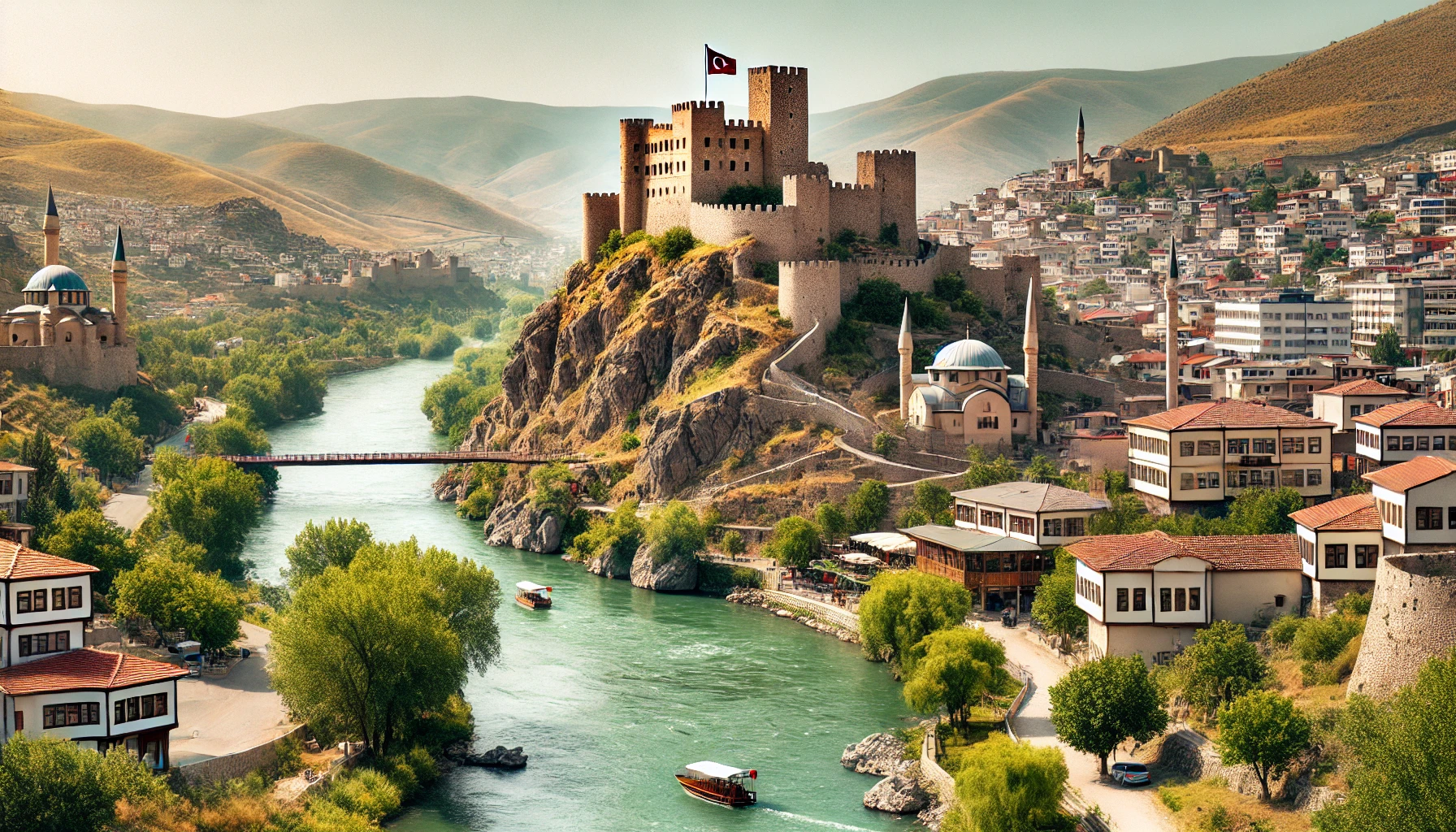Real Estate in Turkey
Turkey, a country straddling both Europe and Asia, offers a dynamic and attractive real estate market. From bustling cities to serene coastal towns, Turkey presents numerous opportunities for property investors and homebuyers alike. This comprehensive guide will delve into the various aspects of real estate in Turkey, providing valuable insights for those interested in this vibrant market. Whether you’re looking for a vacation home, a retirement haven, or a profitable investment, Turkey has something to offer.
Why Invest in Turkish Real Estate?
Strategic Location
Turkey’s strategic location at the crossroads of Europe and Asia makes it a prime spot for real estate investment. Its proximity to major markets and its position as a key transit hub enhance its appeal.
Economic Growth
Turkey has experienced significant economic growth over the past few decades. A strong economy coupled with a young and dynamic population creates a favorable environment for real estate investment.
Diverse Property Options
From modern apartments in Istanbul to luxurious villas on the Aegean coast, Turkey offers a wide range of property options to suit different tastes and budgets.
Popular Cities for Real Estate Investment
Istanbul
Istanbul, Turkey’s largest city, is a bustling metropolis with a rich history and vibrant culture. The city’s real estate market is diverse, offering everything from historic homes in Sultanahmet to modern high-rises in Levent.
Neighborhoods to Consider
- Beyoğlu: Known for its lively atmosphere and historical buildings.
- Beşiktaş: A bustling district with a mix of residential and commercial properties.
- Kadıköy: A vibrant area on the Asian side with excellent amenities and transport links.
Ankara
As the capital city, Ankara offers a stable real estate market with a strong focus on government and administrative functions. It’s an ideal location for those seeking a more subdued urban lifestyle.
Key Areas
- Çankaya: Known for its upscale residences and diplomatic missions.
- Kızılay: The commercial heart of Ankara with a mix of residential and business properties.
Antalya
Antalya, located on the Mediterranean coast, is a top destination for tourists and expatriates. The city’s real estate market is buoyed by its stunning beaches, historical sites, and a pleasant climate.
Prime Locations
- Lara Beach: Popular for its luxury resorts and beachfront properties.
- Kaleiçi: The historic old town with charming Ottoman-era houses.
Coastal and Resort Areas
Bodrum
Bodrum, on the Aegean coast, is renowned for its beautiful beaches, vibrant nightlife, and luxurious lifestyle. It’s a favorite among both local and international buyers.
Notable Areas
- Yalıkavak: Known for its upscale marina and luxurious villas.
- Gümüşlük: A quieter area famous for its bohemian vibe and seafood restaurants.
Fethiye
Fethiye is another gem on the Mediterranean coast, offering stunning natural beauty and a laid-back lifestyle. It’s ideal for those seeking a tranquil retreat.
Key Spots
- Ölüdeniz: Famous for its Blue Lagoon and paragliding opportunities.
- Çalış Beach: A popular area with a relaxed beachside atmosphere.
Types of Properties
Apartments
Apartments are the most common type of property in Turkey, especially in urban areas. They range from compact studios to spacious penthouses.
Features and Amenities
Modern apartments often come with amenities such as swimming pools, gyms, and security services. New developments may also offer smart home features and eco-friendly designs.
Villas
Villas are popular in coastal and suburban areas. They offer more privacy and space, making them ideal for families and those seeking a luxurious lifestyle.
Luxury Features
Many villas come with private pools, landscaped gardens, and stunning views of the sea or mountains. High-end villas may also include features such as home cinemas, saunas, and wine cellars.
Commercial Properties
For those looking to invest in commercial real estate, Turkey offers a range of options, including office spaces, retail units, and hotels.
Investment Opportunities
Commercial properties in major cities like Istanbul and Ankara can provide attractive rental yields and long-term capital appreciation.
Legal Aspects of Buying Property in Turkey
Foreign Ownership
Foreigners are allowed to purchase property in Turkey, with some restrictions in military zones and rural areas. The process is straightforward, but it’s advisable to work with a local real estate agent and legal advisor.
Title Deed (Tapu)
The title deed, or Tapu, is a crucial document in the property purchase process. It officially transfers ownership from the seller to the buyer and must be registered with the local land registry office.
Property Taxes and Fees
Buying property in Turkey involves several taxes and fees, including:
- Title Deed Fee: Typically 4% of the property’s sale price.
- Stamp Duty: Applied to various legal documents.
- Property Tax: Paid annually, based on the property’s assessed value.
Residency Permits
Purchasing property in Turkey can make it easier to obtain a residency permit. Property owners and their immediate family members can apply for long-term residency permits, which can be renewed annually.
Financing and Mortgages
Mortgage Options
Foreign buyers can obtain mortgages in Turkey, though terms and conditions may vary. Turkish banks offer a range of mortgage products, including fixed-rate and variable-rate options.
Requirements
To qualify for a mortgage, buyers typically need to provide proof of income, credit history, and a down payment. It’s advisable to consult with multiple banks to find the best mortgage terms.
Alternative Financing
Some developers offer in-house financing or payment plans, which can be an attractive option for buyers. These plans may include installment payments over several years with little to no interest.
Market Trends and Investment Potential
Market Trends
The Turkish real estate market has shown resilience and growth potential, driven by strong demand, economic stability, and government incentives for foreign investors.
Key Drivers
- Urbanization: Increasing urbanization is driving demand for residential and commercial properties.
- Tourism: The thriving tourism industry boosts demand for holiday homes and rental properties.
- Infrastructure Projects: Major infrastructure projects, such as new airports and transportation networks, enhance property values in surrounding areas.
Investment Potential
Turkey’s real estate market offers attractive investment opportunities, with potential for high rental yields and capital appreciation. Coastal areas and major cities are particularly appealing for investors.
Practical Tips for Buyers
Choosing the Right Property
When choosing a property, consider factors such as location, proximity to amenities, and future development plans in the area. Visiting the property and surrounding neighborhood is crucial before making a decision.
Working with Professionals
Engage with reputable real estate agents, legal advisors, and property inspectors. Their expertise can help you navigate the buying process smoothly and avoid potential pitfalls.
Understanding the Market
Stay informed about market conditions and trends. Researching property values, rental yields, and future developments can help you make informed investment decisions.
Living in Turkey
Quality of Life
Turkey offers a high quality of life, with a rich cultural heritage, diverse landscapes, and a pleasant climate. Cities like Istanbul and Izmir provide a cosmopolitan lifestyle, while coastal towns offer a relaxed, resort-like atmosphere.
Cost of Living
The cost of living in Turkey is generally lower than in many European countries. Affordable housing, food, and transportation contribute to a comfortable lifestyle for both locals and expatriates.
Expat Communities
Turkey has vibrant expatriate communities, particularly in cities like Istanbul, Ankara, and coastal areas. These communities offer support and social opportunities, making it easier for newcomers to settle in.
Future Prospects
Economic Outlook
Turkey’s economy is expected to continue growing, supported by strong domestic demand, strategic investments, and government initiatives. This positive outlook bodes well for the real estate market.
Infrastructure Development
Ongoing infrastructure projects, such as the Istanbul Canal and new highways, are set to boost property values and attract further investment.
Sustainability Initiatives
Turkey is increasingly focusing on sustainable development. Green building practices and eco-friendly designs are gaining popularity, enhancing the appeal of modern properties.
Conclusion
Turkey’s real estate market is diverse, dynamic, and full of potential. Whether you’re looking for a vacation home, a profitable investment, or a place to retire, Turkey offers a wealth of opportunities. Its strategic location, economic growth, and rich cultural heritage make it an attractive destination for property buyers from around the world.
By understanding the market trends, legal aspects, and investment potential, you can make informed decisions and find the perfect property to suit your needs. Engage with professionals, conduct thorough research, and explore the various regions to discover all that Turkey’s real estate market has to offer.
So, pack your bags and embark on an exciting journey to explore real estate in Turkey. From the vibrant streets of Istanbul to the tranquil beaches of the Mediterranean, Turkey awaits with open arms and endless possibilities.





